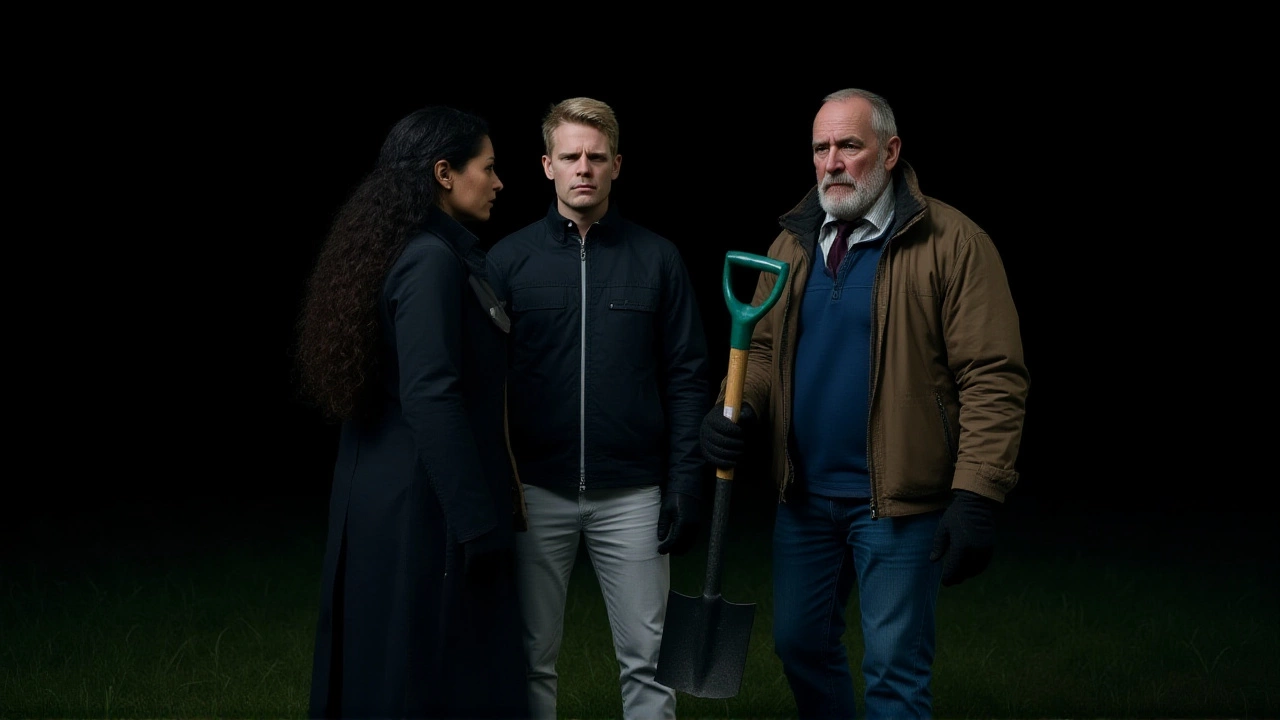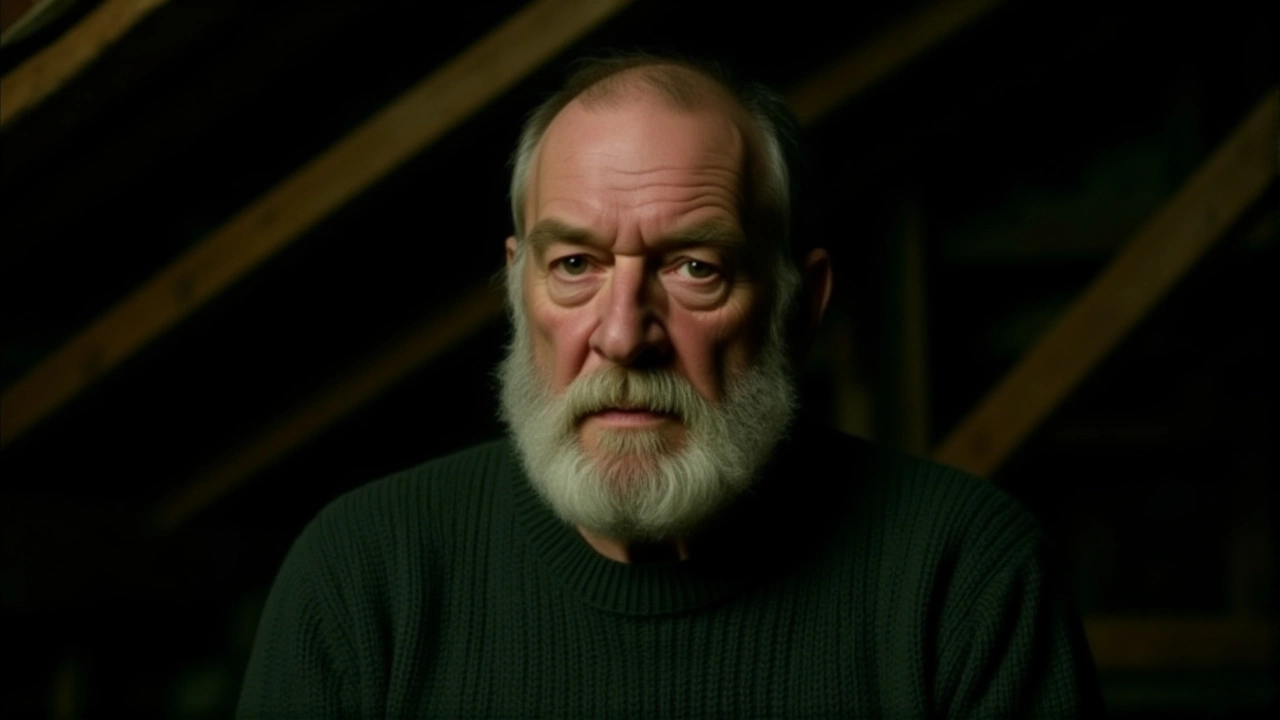When Joshua Richards stepped onto the set of Emmerdale last month, he didn’t just play a man trapped in a barn—he became the voice of someone who can’t escape, even when he wants to. In the latest harrowing episodes airing on ITV, Richards’ character, Bear Wolf, witnesses the death of Anya, a fellow captive, after being denied medical care due to fears of immigration raids. Despite mentally resolving to flee the fictional Emmerdale village, Bear remains physically imprisoned by his captors, Ray Walters and Celia Daniels, in a chilling portrayal of modern slavery that’s left viewers stunned.
The Trap That Won’t Let Go
It’s not chains or locks keeping Bear confined—it’s something far more insidious: manipulation. Richards explains that Bear, a man who once dreamed of leaving the village, now sees Ray Walters as his only source of stability, even after watching Anya die in his arms. "He’s been told for months that Ray’s the only one who cares," Richards said in a recent interview. "And when Ray hands him antibiotics for Anya, even though it’s too late, Bear believes it’s proof Ray’s not all bad. That’s the poison of trauma bonding."
Anya, an undocumented worker with a young daughter, had been growing weaker for days. Bear begged Ray to take her to the hospital, but Ray refused—fearing immigration officials lurking downstairs. When Anya passed, Bear held her as she took her last breath. "It wasn’t dramatic," Richards said. "It was quiet. Too quiet. And then Ray came back, patted his shoulder, and said, ‘It’s okay.’ Bear believed him. He still does."
The Burial That Broke Him
Instead of a funeral, Bear was ordered to dig Anya’s grave in the muddy field behind the barn. "He was told, ‘Just bury her. No ceremony. No fuss,’" Richards recalled. "But Bear did the opposite. He sang to her. The same song he used to hum when she was scared. He sang it to comfort her—and to comfort himself."
That moment, Richards says, was the most emotionally exhausting he’s ever filmed. "You’re not acting. You’re grieving. And you’re alone. The crew didn’t speak. No one moved. You could hear the wind. That’s when you realize: this isn’t soap opera drama. This is real human suffering."
Fellow Captives, Failed Escape
After the burial, fellow captives Simo and Steven Gidwaney approached Bear with a plan: escape before dawn. They’d mapped the perimeter. Knew the guard’s routine. Had food, water, and a car waiting. "Bear looked at them," Richards said, "and just shook his head. ‘I can’t leave him,’ he said. ‘He’s all I’ve got.’"
It’s a heartbreaking twist: the victims are more afraid of each other’s freedom than their captivity. "Bear doesn’t hate Ray," Richards added. "He hates that he needs him. That’s the worst part."

Who’s Really in Control?
Richards’ analysis cuts deeper than most soap opera arcs. He describes Ray Walters as both predator and prisoner—a man who was once exploited himself and now cycles the abuse forward. "Ray’s not a monster," Richards said. "He’s a broken man who thinks he’s protecting Bear by keeping him here. He believes if Bear leaves, he’ll be killed, or arrested, or forgotten. And in Ray’s mind, that’s love."
Celia Daniels, meanwhile, operates with chilling detachment. She handles logistics: food rations, surveillance, silencing dissent. "She doesn’t look you in the eye," Richards noted. "That’s the scariest thing. She doesn’t even pretend to care."
Why This Story Matters
This isn’t just fiction. According to the UK Home Office, over 14,000 potential victims of modern slavery were identified in 2024 alone—many in rural areas like the Yorkshire Dales, where isolated farms and hidden labor are common. The storyline mirrors real cases from Lincolnshire and Norfolk, where undocumented workers were forced into agricultural labor under threat of deportation.
"We’re not trying to shock," Richards said. "We’re trying to make people see. Bear isn’t a character. He’s someone’s son. Someone’s brother. And he’s still in that barn."

What’s Next for Bear?
Future episodes will explore Bear’s fractured psyche as he’s forced to interact with Ray daily—cooking meals, cleaning the barn, pretending everything’s normal. A new character, a social worker investigating missing persons in the area, is set to arrive in early 2026, raising the possibility of rescue… or retaliation.
"Bear’s not ready," Richards said. "And he might never be. That’s the tragedy. Some people don’t get a happy ending. Some just survive."
Frequently Asked Questions
Why doesn’t Bear Wolf leave the village even though he wants to?
Bear is psychologically trapped by trauma bonding—his captor, Ray Walters, has systematically manipulated him into believing he’s the only person who cares. After Anya’s death, Ray’s false reassurance deepened Bear’s dependence. Even though Bear mentally resolved to escape, the fear of abandonment, combined with Ray’s emotional manipulation, has paralyzed his will to flee.
How does Anya’s death reflect real-world issues?
Anya’s story mirrors real cases of undocumented workers denied medical care due to fear of deportation. In 2023, the UK’s National Crime Agency reported 87 cases where migrant laborers died from treatable illnesses because they avoided hospitals. Her death underscores how systemic exploitation leads to preventable tragedies, especially in rural labor sectors.
Is Ray Walters truly a victim too?
According to Joshua Richards, Ray was once exploited himself and now perpetuates abuse as a survival mechanism. He doesn’t see himself as a villain—he believes he’s protecting Bear from a worse fate. This cycle of trauma is common in abusive systems, where victims become perpetrators, making intervention more complex than simply arresting the captor.
What role does the setting of Emmerdale village play in this storyline?
The fictional village mirrors real rural communities in West Yorkshire where isolation, limited police presence, and economic hardship create ideal conditions for hidden exploitation. The barn setting isn’t random—it reflects documented cases of modern slavery in agricultural sheds and remote farm buildings across northern England.
Will Bear Wolf ever escape in future episodes?
Joshua Richards confirms Bear won’t leave in the immediate future. The narrative is deliberately slow-burning, focusing on psychological recovery rather than quick rescue. A social worker’s investigation is coming, but whether Bear trusts her—or even recognizes he’s a victim—is still uncertain. His escape, if it comes, will be emotional, not physical.
How has the public reacted to this storyline?
Viewers have flooded ITV’s social media with messages praising the show’s sensitivity, while charities like the Anti-Slavery Collective have called it "the most accurate depiction of trauma bonding on British TV." The storyline has sparked renewed public interest in the UK’s Modern Slavery Act, with over 12,000 signatures on a petition demanding better protections for undocumented workers in rural industries.
